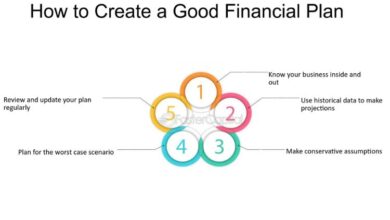The Best Refinance Home Loan Options in Singapore – Top Picks & Reviews

🏠🔍 Ready to refinance your home loan? Discover the best options in Singapore with our top picks & user reviews! 💰📈 #RefinanceHomeLoan🏠
Home Loan Refinancing in Singapore
Home loan refinancing is becoming increasingly popular in Singapore as homeowners seek ways to reduce interest costs, enjoy better loan terms, or unlock equity for other purposes. With banks and financial institutions offering competitive packages, many are switching to refinance for better control over their long-term finances.
Refinancing involves replacing your existing home loan with a new one, usually with better terms such as lower interest rates, a different loan tenure, or cash-out options. To find the best refinance home loan singapore, it’s essential to compare the available options, ensuring that you can secure the most advantageous deal. The goal is to help borrowers reduce their monthly repayment burden or gain more flexibility.
Why Consider Refinancing?
Refinancing offers multiple potential benefits. It can help secure a lower interest rate and reduce monthly repayments. Some homeowners use it to shorten or extend their loan tenure depending on their financial goals. Others refinance to access home equity for renovations or investments. Overall, refinancing can improve cash flow and provide greater financial flexibility.
Key Factors to Consider
Before refinancing, it’s important to evaluate your current interest rate compared to prevailing market rates. Consider the remaining loan tenure, any lock-in period penalties, legal and administrative fees, and your creditworthiness. These elements will affect the cost-effectiveness and overall benefits of switching your loan.
Interest Rates
Interest rates are a primary reason homeowners consider refinancing. Keeping an eye on market trends, such as changes in the Singapore Overnight Rate Average (SORA), can help you secure more favourable loan terms.
Loan Tenure
The tenure of your loan affects both your monthly repayment and the total interest paid over time. A longer tenure lowers monthly payments but increases the overall interest, while a shorter one saves interest but requires higher monthly repayments.
Lock-In Period
Most home loans come with a lock-in period, typically lasting two to three years. Exiting the loan during this time often incurs penalties. Understanding when your lock-in ends is crucial for timing your refinance effectively.
Fees
Refinancing may involve legal fees, valuation costs, and administrative charges. Some banks offer subsidies or absorb certain costs, so it’s important to compare the overall refinancing package rather than just the interest rate.
Top Criteria for Selection
When choosing the best refinancing options, we looked at factors like interest rate competitiveness, lock-in flexibility, customer service reputation, promotional offers such as cashback or legal fee subsidies, and the speed and simplicity of the application process.
Common Misconceptions
A common myth is that refinancing is only for homeowners with high-interest loans. In reality, it can benefit anyone looking to improve loan terms. Some also believe the process is too costly or complicated, but with digital platforms and bank offers, refinancing is more accessible than ever.
Pitfalls to Avoid
Refinancing too early might result in penalty fees that outweigh savings. Extending the loan tenure unnecessarily can also increase your total interest. Always read the fine print and ensure the new terms truly improve your financial situation.
Economic Climate and Market Trends
Understanding current economic trends, such as inflation or global interest rate movements, can help you gauge whether it’s the right time to refinance. Changes in the SORA or global economic pressures may influence mortgage rates in Singapore.
Step-by-Step Process
The refinancing journey begins by assessing your financial goals and reviewing your current mortgage terms. After that, compare different lenders and packages available in the market. Check if your current loan has any lock-in period or penalties. Prepare necessary documents such as proof of income and CPF contributions, then submit your application to the chosen lender. Once approved, review and sign the new legal documents. The bank and your lawyer will handle the switch, and you’ll begin repayment under the new loan terms.
Documents Required
You’ll need your NRIC, latest CPF and income statements, your current loan details, IRAS tax statements if required, and a property valuation. Most banks will help you with the valuation process as part of the application.
Tips for a Seamless Process
It helps to check your credit score before applying and make sure all required documents are ready. Compare lenders not just by interest rates, but also by processing time and hidden fees. If you’re unsure, consider consulting a mortgage broker who can guide you through the process more efficiently.
Refinancing your home loan can help lower your monthly repayments, shorten or extend your loan tenure, or unlock equity in your property. It’s essential to compare options carefully, understand all fees involved, and time your application based on market conditions. Done right, refinancing can lead to significant long-term financial benefits.
For homeowners in Singapore thinking about refinancing, start by reviewing your current loan details and financial goals. Explore your options with different banks, and don’t hesitate to seek expert advice. Always read the terms thoroughly before committing to a new loan.
Top banks like DBS, OCBC, and UOB are known for offering competitive rates and reliable service. The best bank for you depends on your specific financial needs, goals, and whether you qualify for subsidies or promotions.
If you prefer to work with a third-party platform that compares multiple banks, consider services like Redbrick, Mortgage Master, or MoneySmart. They offer helpful tools and advisors to make the process easier.
The ideal time is after your lock-in period ends or when market interest rates drop. It’s also worth considering if your home value has increased significantly or if your current mortgage terms no longer meet your financial needs.
While it’s difficult to predict, mortgage rates in Singapore may fluctuate depending on global economic trends, inflation, and government policy. It’s wise to monitor interest rate movements and consult your bank or mortgage advisor regularly.


